SPIELBERG

SPIELBERG

The Man, the Movies, the Mythology
UPDATED EDITION
Frank Sanello

First Taylor Trade Publishing edition 2002
This Taylor Trade Publishing paperback edition of Spielberg is an unabridged republication of the edition first published in Dallas, Texas in 1996, with the addition of four new chapters, an updated filmography, and three textual emendations. It is reprinted by arrangement with the author.
Copyright 1996 by Frank Sanello
Updated edition copyright 2002 by Frank Sanello
All rights reserved.
No part of this book may be reproduced in any form or by any electronic or mechanical means, including information storage and retrieval systems, without written permission from the publisher, except by a reviewer who may quote passages in a review.
Published by Taylor Trade Publishing
A Member of the Rowman & Littlefield Publishing Group
4720 Boston Way
Lanham, Maryland 20706
Distributed by National Book Network
Library of Congress Control Number: 2002105743
ISBN 0-87833-148-4 (paper : alk. paper)
ISBN: 978-0-87833-148-2
 The paper used in this publication meets the minimum requirements of American National Standard for Information SciencesPermanence of Paper for Printed Library Materials, ANSI/NISO Z39.481992.
The paper used in this publication meets the minimum requirements of American National Standard for Information SciencesPermanence of Paper for Printed Library Materials, ANSI/NISO Z39.481992.
Manufactured in the United States of America.
CONTENTS

INTRODUCTION

The Reluctant Jew
For a Jew, its a shame Steven Spielberg is so white bread.
megafilm producer Don Simpson
(Crimson Tide)
The conventional has always appealed to Steven.
Leah Adler, his mother
There are literally six million stories that could be told about the Holocaust. It speaks volumes about Steven Spielberg that he chose perhaps the only one with a happy ending.
an industry source
IF EVER AN ARTISTS BODY OF WORK WAS A product of his upbringing and background, director Steven Spielbergs films are exactly that.
His mother Leah was an accomplished classical pianist. His father an inventor and electrical engineer who designed computers for RCA, GE, and IBM.
Spielberg and his work can be seen as a fusion of these two very different parents. His fathers influence contributed the techno-wizardry which is the hallmark of most Spielberg films, all those sci-fi epics and scare-em-to-death roller-coaster rides. His mothers artistic bent provided the aesthetic balance which enriched his low-tech, character-driven films like Schindlers List and The Color Purple.
Spielbergs religious upbringingor lack thereofinfluenced not only his formative years but the flavor and content of his films.
I wasnt a religious kid, although I was Bar Mitzvahed in a real Orthodox synagogue, he once recalled. His earliest memory was of entering a Cincinnati synagogue for services with Hasidic elders. The old men were handing me little crackers. My parents said later I must have been about six months old!
His early works were indeed as Don Simpson said, white bread. Spielbergs fascination with Waspy suburbia under siege in everything from Close Encounters of the Third Kind to Poltergeist reflected his own childhood, growing up Jewish in primarily Anglo-Saxon neighborhoods. He was at once the alien and the insider. The local boy who was somehow different by reason of his Jewishness.
In childhood, its fair to say Steven Spielberg was a reluctant Jew. The theme of longing to belong permeated much of his work until only recently. It was only after fully accepting his Jewishness that Spielberg flowered as a mature artist, capable of producing his Oscar-winning masterpiece, Schindlers List.
CHAPTER ONE

Baby Mogul
STEVEN SPIELBERG WAS BORN DECEMBER 18, 1946, in Cincinnati. (For years he asserted that his birthdate was 1947. But in 1995, in response to a long-running legal battle, Spielberg acknowledged that 1946 was the correct year.) His fathers work as an electrical engineer led to a change of jobs and home every few years. Young Steven remembered himself as always being the new kid on the block, the new boy at school, never fitting in. Whenever he finally did manage to insinuate himself into the local crowd, the family would up and move to a new city.
After Cincinnati, there was a brief stop in Haddonfield, New Jersey. Then the family settled for its longest period in Scottsdale, Arizona. Steven lived in this Ur-Wasp suburb from the ages of nine to sixteen.
His mother, Leah, an adventurous type, did not want to live in a Jewish neighborhood and always plopped the family down right into the middle of Gentile, U.S.A. Today, his mother regrets this rejection of her roots. I was raised in an Orthodox home, but I chose to rear my children in non-Jewish neighborhoods. That was my one really big mistake. The kids next door used to stand outside yelling, The Spielbergs are dirty Jews. So one night Steven snuck out of the house and peanut-buttered all their windows.
Spielberg found belonging to the only Jewish family on the block a lonely position, especially at Christmas, when theirs was the sole house in the neighborhood unlit by decorations. In vain, the dying-to-assimilate youth begged his father to at least put a red light in the window. I was ashamed because I was living on a street where at Christmas we were the only house with nothing but a porch light on, he has said.
His parents refused, but not out of any great sense of Jewish identity or pride. In fact, he remembers that when the family moved from New Jersey to Scottsdale, they stopped keeping kosher for no particular reason.
Spielberg has described his family as storefront kosher. Thats the equivalent of cafeteria Catholics, those who pick and choose what dicta of the Pope to believe or discard, sort of like selecting the broccoli but rejecting the jicama at the salad bar.
The Spielbergs storefront kosherism had the flavor of an ethnic sitcom. Leah Spielberg (nee Posner) loved shellfish, a food strictly verboten by Judaic dietary laws. One day when she and her son, who shared his mothers fondness for crustaceans, were about to pop two giant lobsters into a pot of boiling water, their rabbi pulled into the driveway for an unannounced visit.
You can almost hear the television laughtrack in the background as Leah instructed her son to hide the offending creatures under his bed.
The rabbi came to my room to see how I was doing, Spielberg wrote in a first person memoir in Time magazine. You could hear the lobsters clicking and clacking at each other with their tails. The rabbi just sort of stared and sniffed the air; he must have wondered what that tref (unkosher) scent was, lingering in the kids bedroom. The minute the rabbi left, my mom and I gleefully threw the lobsters into a pot of boiling water and then ate them.
Years later, Leah, divorced and remarried to Bernie Adler, would atone for such sins by opening a popular kosher deli in west Los Angeles, called the Milky Way in honor of her sons galactic epic,
Next page

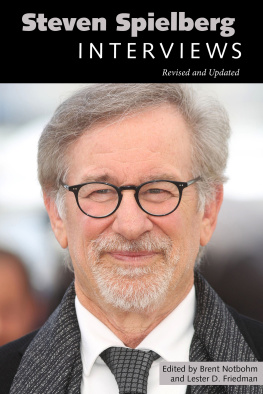
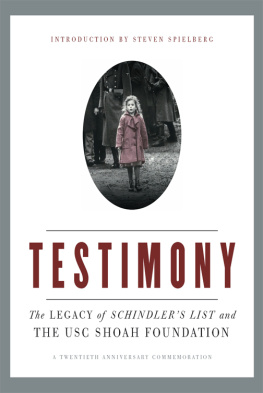
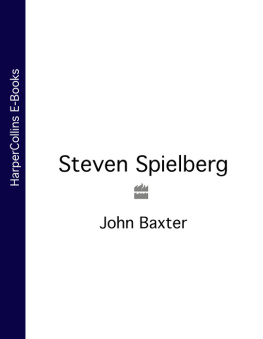
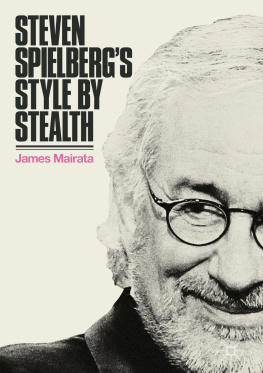
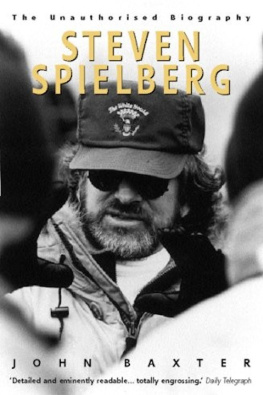
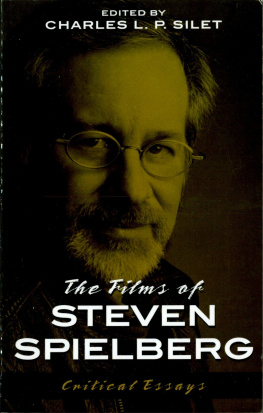
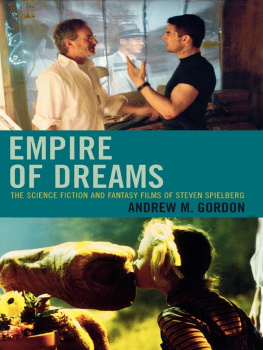
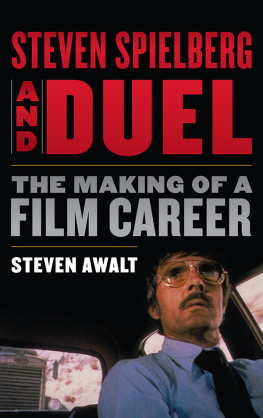
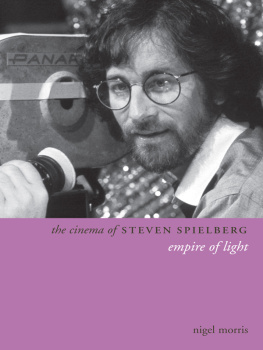



 The paper used in this publication meets the minimum requirements of American National Standard for Information SciencesPermanence of Paper for Printed Library Materials, ANSI/NISO Z39.481992.
The paper used in this publication meets the minimum requirements of American National Standard for Information SciencesPermanence of Paper for Printed Library Materials, ANSI/NISO Z39.481992.